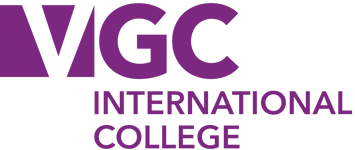Nine Things that Make Your Language Learning Easier
by HENRIETTE FREESE

Maybe you’ve already been studying English for a while, maybe you are stuck right now or you just want to get better faster? Then read on! We gathered some tips and strategies that will make your language learning easier and hopefully help you enjoy learning your new language even more!
Just like in sports, it will be easier to study if you have a partner that can push you when you might feel unmotivated or where you can have a little rivalry and competition. If you see someone else is doing more, you might want to work harder too. Most people find that a little bit of competition can really help you progress.

Conversation is one of the most effective ways to improve your language, but you may not always have a partner around. If that’s the case, there’s nothing wrong in talking to yourself. Even if you feel funny at the beginning, this is a great way to practise things you’ve learned and to build up the confidence for the next time you talk to someone else.
If you’re still too shy to speak to others in English or find the idea of talking to yourself awkward, start writing a diary. Write down your experiences of the day, things you observed, what you find funny or interesting words that you came across. If you start to write every day, it will become a routine and you will notice how you gradually make process.
When we were kids, we were expected to make mistakes as we learned new things, but as adults we seem to have forgotten about that and mistakes have now become a taboo. When learning a new language, be ready to leave your comfort zone.
Ask strangers for directions, have a chat with the waiter when ordering food and go to meetups, for example. This proactive attitude will gradually make you feel more comfortable speaking in the new language.
Mistakes are a positive part of learning, and are necessary in order to make progress. In fact, sometimes learning from mistakes will make a word stick a little easier in your mind because you have spent more time on it. Embrace mistakes and learn from them, because if you don’t make them, nobody will be able to correct and improve you!

Did you know that music stimulates the brain and can be incredibly helpful for memorizing things? Since our early stages in life, we’ve been learning about the world and new phrases through music and rhythm. And you can use this kind of stimulation for your language learning today as well.
While you sing along, music with English lyrics will help enrich your vocabulary, teach you new words and combinations and also help you with pronunciation.
Watching foreign movies and TV shows or listening to the radio will help you rapidly to improve your pronunciation and learn idiomatic phrases. While watching a movie, you’ll see how the language is spoken and how words are used in a certain context.
You will be exposed to authentic English expressions from everyday situations and a range of different accents. Exposing yourself to the new language will help you improve naturally.
This is an easy way to help you improve your vocabulary in context of specific topics. If you are reading news snippets on paper, you are exposed to grammatically correct language and can learn idiomatic phrases. If you prefer magazines on your favourite topic, you will expand your vocabulary in that certain area.
You can find lots of free magazines to read online on issuu.com. If you’d rather immerse yourself in a fictional story, read books in their original language. They will also contain speech between characters and will use colloquial phrases. Whatever you choose – if you’re interested in the topic and have a connection to it, you will be more motivated to learn.

Flashcards are one of the most traditional ways of language learning and vocabulary rehearsing – and they are very effective. You can write your own deck according to the vocabulary from your class and can practice anywhere at any time. Once you memorized a word, you can put it aside and add new vocabulary. You get to know where your gaps are, so this technique will help you practice exactly what you need.
Practicing your language with people that are better than you will motivate you and help you advance a lot faster. The more you do this, the faster you will progress. If you are too shy to approach strangers or to seek language exchange partners, come visit our Study Lab and practise your conversational skills with one of our native English speakers.
Whatever technique you use, make sure you are having fun while studying a new language. Every person is different, so find the technique that can help you the most. We’d love to hear about your experiences and what works best for you!
[custom_author=Henriette Freese]
